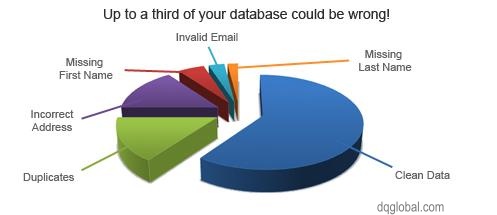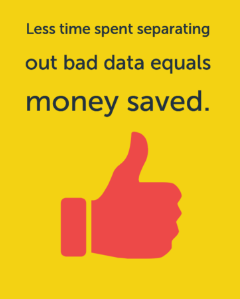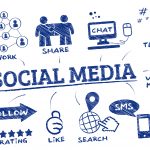For Data Science Immersive, Santa Monica, Summer 2016
Information has become, in many ways, the question of our times, especially in the way that we store it. With all the online services available to us now, each one requiring exchanges of vast amounts of data, it’s easy to get lost in the technical aspects of how it is actually managed.
Surely, no single person could really handle, much less understand, the extensiveness of modern data systems. Data cleansing is a perfect example of a way to simplify seemingly uncontrollable amounts of data and is an absolute necessity for any large business.

In a way, this is true, but developers have addressed this issue by designing tools and systems, which break down large amounts of data so that they become more manageable. “Given the scale and complexity of the data landscape, across organizations of all sizes and in all industries, tools to help automate key elements of this discipline continue to attract more interest and to grow in value,” authors Saul Judah, research director, and Ted Friedman, VP and distinguished analyst, wrote in the Gartner Magic Quadrant report for Data Quality Tools 2015. “Consequently, the data quality tools market continues to show substantial growth, while also exhibiting innovation and change.”
What is Clean Data?
Cleanliness is an attribute that we normally associate with people, not data. Clean data is defined by the cleansing process, which removes inaccuracies or errors from an original data set and produces a new, accurate set of data. The obvious benefits lie in the fact that people can make more informed decisions based on the accuracy of clean data.
What is “accurate” data? In a basic way, accuracy is determined by the type of data in question and its proper format. For example, age-related data should be defined by a numeric quantity to be logical. In a deeper sense, “accurate” data can be more narrowly defined as data that is currently true.
“How do we know if our data is accurate, or if we can trust our final conclusions?” asks Matthew Peters of Moz. “If we want to use this data to find a better way to do marketing, we have to be careful about accuracy.” This means that outdated data, though it may be logical and properly formatted, could no longer be accurate and must be cleaned.
If you search for “data cleansing,” you will likely find at least a couple of ads for data cleaning services. Like any service, there are a range of solutions to meet the needs of personal users all the way up to large scale businesses. Data cleaning tools and services will also vary in the amount of input or oversight that is required for the process. When picking one, it is important to keep in mind the scale of the project and the end goal.
Why is it Important?
 By eliminating duplicates, errors, and inaccurate data, users and organizations can operate more efficiently. Simply put, less time spent separating out bad data equals money saved. It’s also a method for figuring out how the inaccurate data was produced in the first place and preventing it in the future.
By eliminating duplicates, errors, and inaccurate data, users and organizations can operate more efficiently. Simply put, less time spent separating out bad data equals money saved. It’s also a method for figuring out how the inaccurate data was produced in the first place and preventing it in the future.
Businesses that strive to maintain high-quality, clean data have many advantages over the rest of the competition, specifically within customer relations.Clean data is the lifeblood of customer relationship management (CRM) systems. Clerical errors are a major source of frustration for customers of all types of services. Internet services, for example, are expected to have extremely accurate data and extensive support for their customers. Whenever they fall short, customers can quickly grow impatient and wary.
Mishandled information only serves to build mistrust in the digital marketing world. Customers tend to give out false information when they are not sure if they can trust an organization with accurate details. For example, many users have separate email addresses that they rarely check, which are used to sign up for services that will likely send them lots of spam. Customers are least likely to share more sensitive information, such as addresses, phone numbers, or social security numbers.
Demonstrating an ability to manage and clean data securely is becoming an increasingly vital business strategy. Strong clean data practices prevent waste by saving time and, ultimately, money. It also helps build trust and meaningful connections to improve user experiences.



